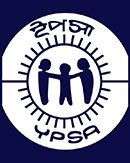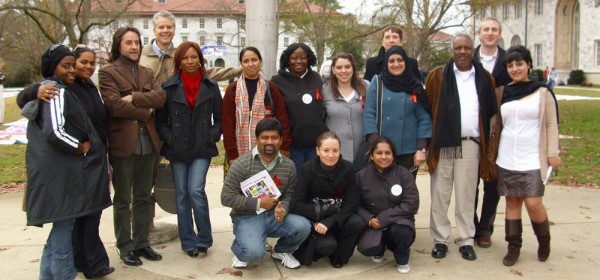The U.S. Department of State helps to shape a freer, more prosperous world through formulating, representing and implementing the President’s forging policy, the secretary of State in the President’s principal adviser on foreign policy and person chiefly responsible for U.S.representation abroad.
The bureau of Educational and Culture Affairs ( ECA) fosters mutual understanding between theUnited Statesand other countries through international educational, professional and culture exchanges. The Bureau promotes personal, professional, and institutional ties private citizens and organizations in theUnited Statesand abroad, and presentsU.S.history, society, art and culture in all of its diversity to overseas audiences.
This 21 day program is designed for professionals in government and health care sectors, educators, and community activists and opinion leaders, all of whom shape the nature and direction of discussion on HIV/AIDS policy in own country. Through interaction with other counterparts in theU.S.the program is designed to shed light onto educational strategies government and non government agencies employ for various demographic groups, provide insight into treatment and palliative models in urban and rural settings, and impact knowledge of alternative HIV/AIDS therapies.
Project Goals.
- To exploreU.S.policies on the education, prevention and treatment of HIV/AIDS at the national, state and local levels.
- To high the contributions of non-governmental organizations in educating the public about HIV/AIDS and supporting individuals and communities affected by the disease.
- To promote international cooperation in the fight against the spread of HIV/AIDS.
The project addressed the following themes in each city.
Washington, DC
Saturday, November 14- Thursday, November 19
- Overview of the U.S government
- U.S government funded programs
- Empowering nonprofits who assist at risk populations
- The effectiveness of sex education and/or abstinence programs
- Designing global HIV/AIDS prevention programs.
San Francisco, California
Thursday, November 19- Wednesday, November 25
- Use of traditional and new media to deliver positive information about sexuality and HIV/AIDS
- New media and online social networking websites to reach youth
- Programs designed for substance abusers, prisoners and sex workers.
- Role of organizations that provide legal assistance for people with HIV/AIDS
- Alternative theories regarding HIV/AIDS
Minneapolis/St.Paul, Minnesota
Wednesday, November 25- Tuesday December 1
- Challenges of combating HIV/AIDS in rural communities.
- Training programs for medical students, healthcare professionals and volunteers
- Organizations that target vulnerable groups such as women, youth and ethnic minorities
- Role of alternative and creative therapies in empowering people with HIV/AIDS and their families.
Atlanta, Georgia
Tuesday, December 1- Saturday, December 5
- Combining clinical research, treatment with alternative therapies
- Exploring the legal and spiritual aspects of HIV/AIDS
- Developing culture-specific educational materials for care and receivers.
Local Sponsors
In mostU.S.cities outside ofWashington,DCandNew York city, the Mississippi Consortium for International Development works closely with community affiliates of the National Council for International Visitors ( NCIV). NCIV represents a network of over ninety local nongovernmental organizational understanding by opening their homes, schools, business, local government and nongovernmental agencies to leaders from abroad. These organizations act a local sponsors of the International Visitor Leadership Program by arranging professional and social activities for participants visited their communities.

